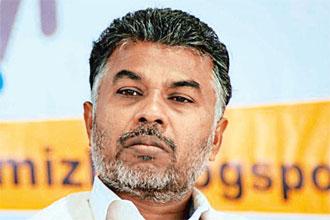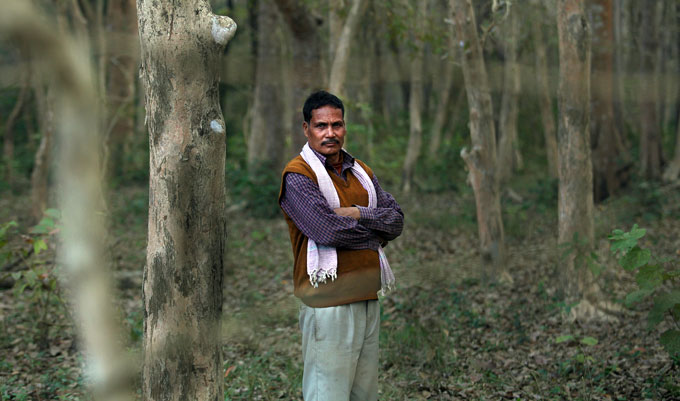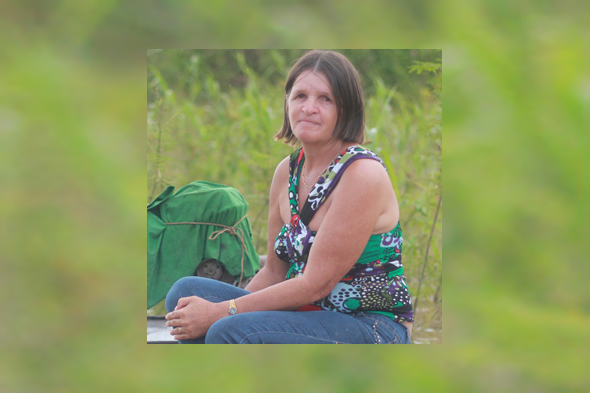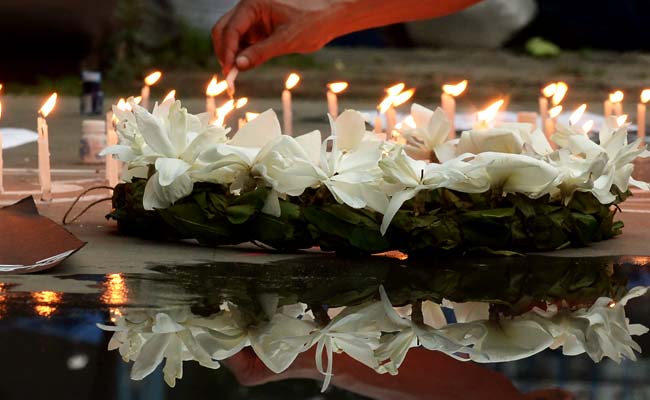Perumal Murugan's poetic comeback: The renowned author says he will start writing again with gusto. "Judgement comforts a wilted heart", says Perumal

Photo: Wikimedia Commons
Much to the joy of friends and followers, Murugan has announced that he will return to writing, strengthened by the verdict of the Madras HC. After the Madras HC quashed a criminal case against Tamil writer Perumal Murugan for his controversial writings on caste, Perumal Murugan delivered a short, succinct statement expressing his joy at the verdict.
“Hello.
The judgment gives me much happiness. It comforts a heart that had shrunk itself and had wilted. I am trying to prop myself up holding on to the light of the last lines of the judgment:
"Let the author be resurrected to what he is best at. Write."
“I will get up. It is just that my mind wishes to spend a little time in the joy of this moment; my thanks to friends who stood by me.”
The Flower
A flower blooms
after the big bang
Sharp fragrance
Sweet countenance
Shining Splendor
The flower would
take up and establish
everything.”
Kannan Sundaram, the publisher of Madhorubangan also told the media, "It was an excellent judgement and we could not have had anything more then this. It was a beautiful judgement. It was Perumal Murugan who informed me. He was very happy."
Kannan Sundaram has also said that he hopes that Perumal Murugan will now also republish all his earlier works. "The judgement is an encouragement for artists and writers, but more than that the judges have helped framed guidelines for the government and police on how they should act in such times. This was one of our submissions and the court accepted a few," he added. Murugan’s publisher had completely stood by the popular and radical author. A video interview with the publisher can be seen here.
Murugan’s counsel for the case which was hearing the case, V Suresh, asked that the court frame guidelines for such ‘peace meetings’.
Close to eighteen months ago, in Janurary 12, 2015, days after Tamil author Perumal Murugan faced the initial backlash from the Kongu Vellalar community in Tiruchengode for his book Madorubagan, a ‘peace meeting’ was arranged at the Collectorate. Present at the meeting were officials of the district administration, police officers, members of the community agitating against the Perumal Murugan, and the author himself along with his lawyer-friend GR Swaminathan.
At the meeting, Perumal Murugan agreed to apologise to the agitated community, but his counsel advised him against it. Following this, there was a heated argument between officials and the lawyer, with officials pressing Murugan to apologise so there won’t be any law and order problems. The lawyer was of the opinion that Murugan’s freedom of expression was also important.
At this stage, here is what happened, records the judgement of the Madras HC, “The incidents when the so called ‘peace meeting’ was held as discussed in extenso aforesaid would show that the group of people who were outside the Collectorate were actually permitted to have their way by compelling the author to use certain words of apology, which he was not willing to do, but left with a little choice owing to the hostility, decide to budge.”
Serious issues were raised here:
- Should such a ‘peace meeting’ have been allowed to happen?
- Is this kind of definition of ‘maintenance of law and order’ more important than one’s freedom of expression?
- What should be the yardsticks?
- Can one person, group, or organization get any book withdrawn by threatening to disrupt the peace and incite/create law and order problems?
The court, conceding that law and order is also important, a concern, set out the following guidelines which the state will now have to follow in cases involving freedom of expression.
(You can read the full judgment ordered on July 5 here)
1. Presumption in favour of free speech: There is bound to be a presumption in favour of free speech and expression as envisaged under Article 19(1)(a) of the Constitution of India unless a court of law finds it otherwise as falling within the domain of a reasonable restriction under Article 19(2) of the Constitution of India. This presumption must be kept in mind if there are complaints against publications, art, drama, film, song, poem, cartoons or any other creative expressions.
2. Law and order compulsions no binding on artists: The State's responsibility to maintain law and order would not permit any compulsion on the artistes concerned to withdraw from his/her stand and non-State players cannot be allowed to determine what is permissible and what is not.
3. Expert panel to be constituted: It is high time the Government constitutes an expert body to deal with situations arising from such conflicts of views, such expert body to consist of qualified persons in the branch of creative literature and art so that an independent opinion is forthcoming, keeping in mind the law evolved by the judiciary. Such an expert body or panel of experts would obviate the kind of situations we have seen in the present case. In such matters of art and culture, the issue cannot be left to the police authorities or the local administration alone, especially when there is a spurt in such conflicts.
4. Police protection for authors: The State has to ensure proper police protection where such authors and artistes come under attack from a section of the society.
5. Officers need to be sensitized: Regular programmes need to be conducted for sensitizing officials over matters dealing with such conflicts of artistic and literary appreciation.
The first bench of Chief Justice S K Kaul and Justice Pushpa Sathyanarayana dismissed a plea moved by the `people of Tiruchengode', seeking to initiate criminal proceedings against Murugan for allegedly defaming the local community.
The bench primarily struck down the decision of the Namakkal district administration, which apparently arm-twisted the writer at a peace committee meeting in January 2015, among other things, to tender an unconditional apology after some caste-based as well as Hindu supremacist outfits took exception to the novel. The court further directed the state government to circulate a series of guidelines framed by it to take care of similar situations in future, sources said.
The judgment states, “Times have changed. What was not acceptable earlier became acceptable later.Lady Chatterley's Lover is a classic example of it. The choice to read is always with the reader. If you do not like a book, throw it away. Yet, the right to write is unhindered. Let the author be resurrected to what he is best at. Write.“ Chief Justice Kaul stated, “There is no doubt that the language used in the novel, especially the Tamil version, can be said to be rustic and a little crass. Is that by itself fatal? To our mind, the answer to this would be in the negative. There has to be something more to classify the novel as obscene per se or for requirement to delete certain parts of the novel.“
Kaul also relied on the Bombay High Court judgment in the recent Udta Punjabcase to buttress his view. He further held, " Although the above (the Bombay HC's) observations relate to a cinematographic work, they apply on all fours to the present case, as all literary works, whether films, books, or paintings, most certainly fall within the realm of artistic creativity. The novel, Madhorubagan, also attempts to depict the current mores and the stigmas attached to childlessness, with specific reference to the Indian context.




 “I was a bloodthirsty, a murderous urchin who shot anything that moved… I finally stopped shooting in 1960 when I was overcome with remorse for ending the life of a beautiful leopard in the headlights of my jeep”, Billy had told Sanctuary Asia, a wildlife magazine about his past life.
“I was a bloodthirsty, a murderous urchin who shot anything that moved… I finally stopped shooting in 1960 when I was overcome with remorse for ending the life of a beautiful leopard in the headlights of my jeep”, Billy had told Sanctuary Asia, a wildlife magazine about his past life.











